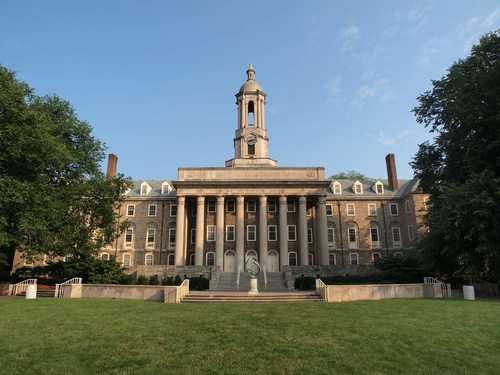
trekandshoot / Shutterstock.com
September 27, 2012; Source: Philadelphia Public Record
Sometimes the press calls for nonprofits to “contribute” to municipal finances given many cities’ long running fiscal debacles. The Philadelphia Public Record doesn’t pull any punches. Tax ‘em, it says in no uncertain terms: “Before the City figures out its new property-tax rate, it needs to tax all the property it’s supposed to tax. And that includes property owned by nonprofits.” The Record characterizes the colleges and hospitals (but not the churches) that dominate in nonprofit land ownership as “nonprofit enterprises.” “A hospital needs streets and sewers, teachers and cops just like a cookie factory does,” the Record’s editorial states. “But the factory pays taxes to support these public services; nonprofits don’t.”
Sign up for our free newsletters
Subscribe to NPQ's newsletters to have our top stories delivered directly to your inbox.
By signing up, you agree to our privacy policy and terms of use, and to receive messages from NPQ and our partners.
The interesting twist in Philadelphia is that part of the nonprofit sector appears to be lining up in favor of taxing the “eds and meds” and perhaps other tax-exempt property owners. The Record cites Philadelphia Area Jobs With Justice (JWJ) Executive Director Gwen Snyder, who opines, “When a university like Penn buys a hotel and runs it for profit, or a hospital lets land lie vacant and undeveloped—then, Mayor Nutter is legally obligated to collect property taxes.” The Record calls on the Nutter administration to “be aggressive” in quickly negotiating “proper PILOTs” with tax-exempt property owners.
It may be that the Record’s editorial writers and other advocates for taxing the tax-exempts have read the substance of the new report from the Lincoln Institute of Land Policy tabulating what it says is the extent of PILOTs collected by municipalities around the nation. According to the Lincoln Institute, at least 218 local governments collect PILOTs of some sort, amounting to a collective annual value of $92 million (the Lincoln study surveyed 600 municipalities with the largest nonprofit sectors).
Because the largest areas of PILOT activity are in Massachusetts and Pennsylvania, and because two-thirds of PILOTs come from universities and one-fourth from hospitals, the pressure on Mayor Nutter to get stronger on exacting PILOTs from the several eds and meds in the City of Brotherly Love must be intense. It must gall groups like JWJ to look at the list of top PILOT-payers in the nation—Harvard University, Yale University, Stanford University, Brown University, Boston University, Massachusetts General Hospital, Dartmouth College, Brigham & Women’s Center, Massachusetts Institute of Technology, and Princeton University—and not to see an Ivy League institution like the University of Pennsylvania.
The Philadelphia controversy might benefit from a discussion of the practical issues connected to PILOTs; that is, they’re really small money. Scattered among 218 cities, that $92 million generally contributes a tiny percentage to municipal budgets, meaning that PILOTS are hardly the panaceas that their proponents seem to suggest. One wonders whether municipal officials that turn PILOTs into a huge cause célèbre are actually more focused on the political symbolism PILOTs might offer than their fiscal return. The other issue to note is what’s missing from the Record’s recommendation. The editorial is tough on the eds and meds, but omits an equally big—if not bigger—landowner in most cities, the churches. Where’s the equity in calling for other nonprofits to pay taxes while religious institutions get a pass?—Rick Cohen












